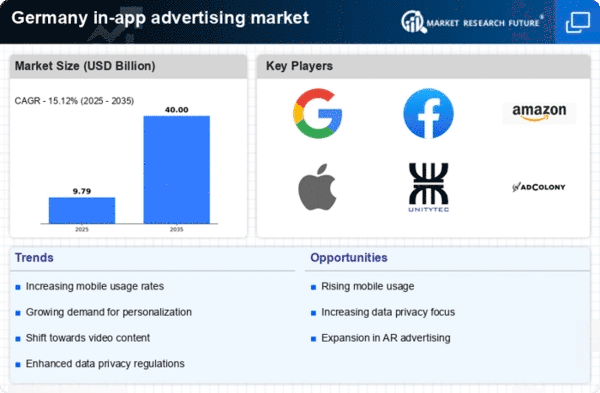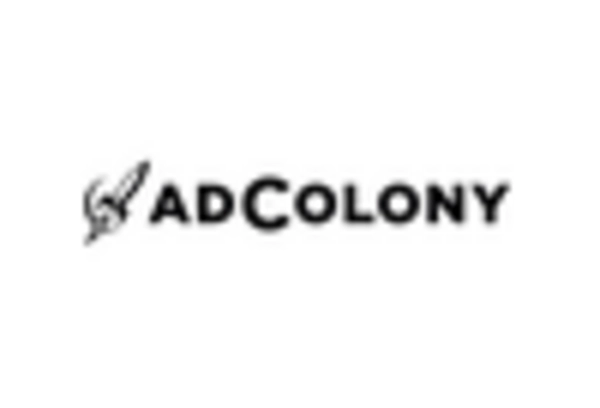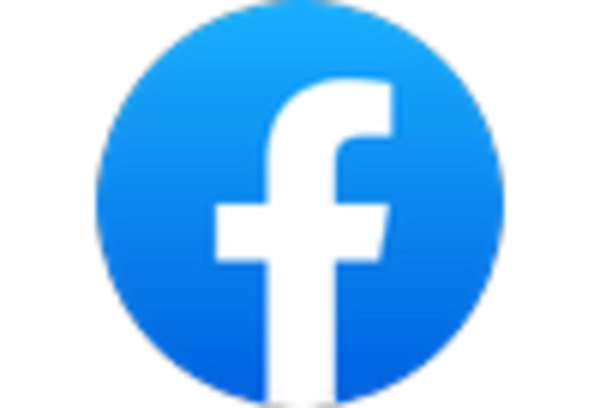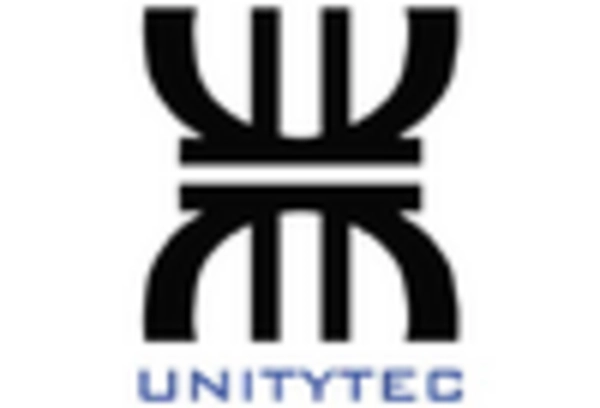Rising Mobile Usage
The in app-advertising market in Germany is experiencing a notable surge due to the increasing prevalence of mobile device usage. As of 2025, approximately 80% of the population owns a smartphone, which facilitates the consumption of mobile applications. This trend indicates that advertisers are likely to allocate more resources towards in app-advertising, as it provides a direct channel to engage users. Moreover, the average time spent on mobile apps has reached around 3 hours daily, suggesting that users are more receptive to advertisements within these platforms. Consequently, this driver is pivotal for the growth of the in app-advertising market, as brands seek to capitalize on the extensive reach and engagement potential offered by mobile applications.
Regulatory Developments
Regulatory changes are playing a crucial role in shaping the in app-advertising market in Germany. With increasing scrutiny on data privacy and consumer protection, advertisers must navigate a complex landscape of regulations. the implementation of the General Data Protection Regulation (GDPR) profoundly impacts how data is collected and utilized in advertising. As of 2025, compliance with these regulations is not only a legal requirement but also a competitive advantage. Advertisers that prioritize transparency and ethical practices are likely to build stronger relationships with consumers, fostering trust and loyalty. This regulatory environment is thus a significant driver for the in app-advertising market, as it compels advertisers to adapt their strategies to align with evolving legal standards.
Advancements in Technology
Technological innovations are significantly shaping the in app-advertising market in Germany. the integration of artificial intelligence (AI) and machine learning algorithms enables more effective targeting and personalization of ads. As these technologies evolve, they enable advertisers to analyze user behavior and preferences with greater accuracy. In 2025, it is estimated that around 60% of in app-advertising campaigns will utilize AI-driven strategies, enhancing the overall effectiveness of advertising efforts. Furthermore, the rise of augmented reality (AR) and virtual reality (VR) in mobile applications presents new opportunities for immersive advertising experiences. This technological advancement is likely to attract more advertisers to invest in the in app-advertising market, as they seek innovative ways to engage consumers.
Growing E-commerce Integration
the integration of e-commerce functionalities within mobile applications significantly influences the in-app advertising market in Germany. As consumers increasingly engage in online shopping through apps, advertisers are capitalizing on this trend by creating shoppable ads that facilitate direct purchases. In 2025, it is estimated that e-commerce-related in app-advertising will represent approximately 40% of total ad revenue. This integration not only streamlines the purchasing process for consumers but also enhances the effectiveness of advertising campaigns. By providing a seamless transition from ad exposure to purchase, brands are likely to see improved conversion rates. Consequently, this driver is essential for the growth and sustainability of the in app-advertising market.
Shift Towards Performance-Based Advertising
The in app-advertising market in Germany is witnessing a shift towards performance-based advertising models. Advertisers are increasingly prioritizing return on investment (ROI) and measurable outcomes, leading to a preference for cost-per-click (CPC) and cost-per-acquisition (CPA) models. This trend is indicative of a broader movement within the advertising industry, where accountability and effectiveness are paramount. In 2025, it is projected that performance-based models will account for over 70% of total ad spend in the in app-advertising market. This shift not only benefits advertisers by ensuring that their budgets are allocated efficiently but also enhances the user experience by delivering more relevant ads. As a result, this driver is crucial for the continued evolution of the in app-advertising market.
















